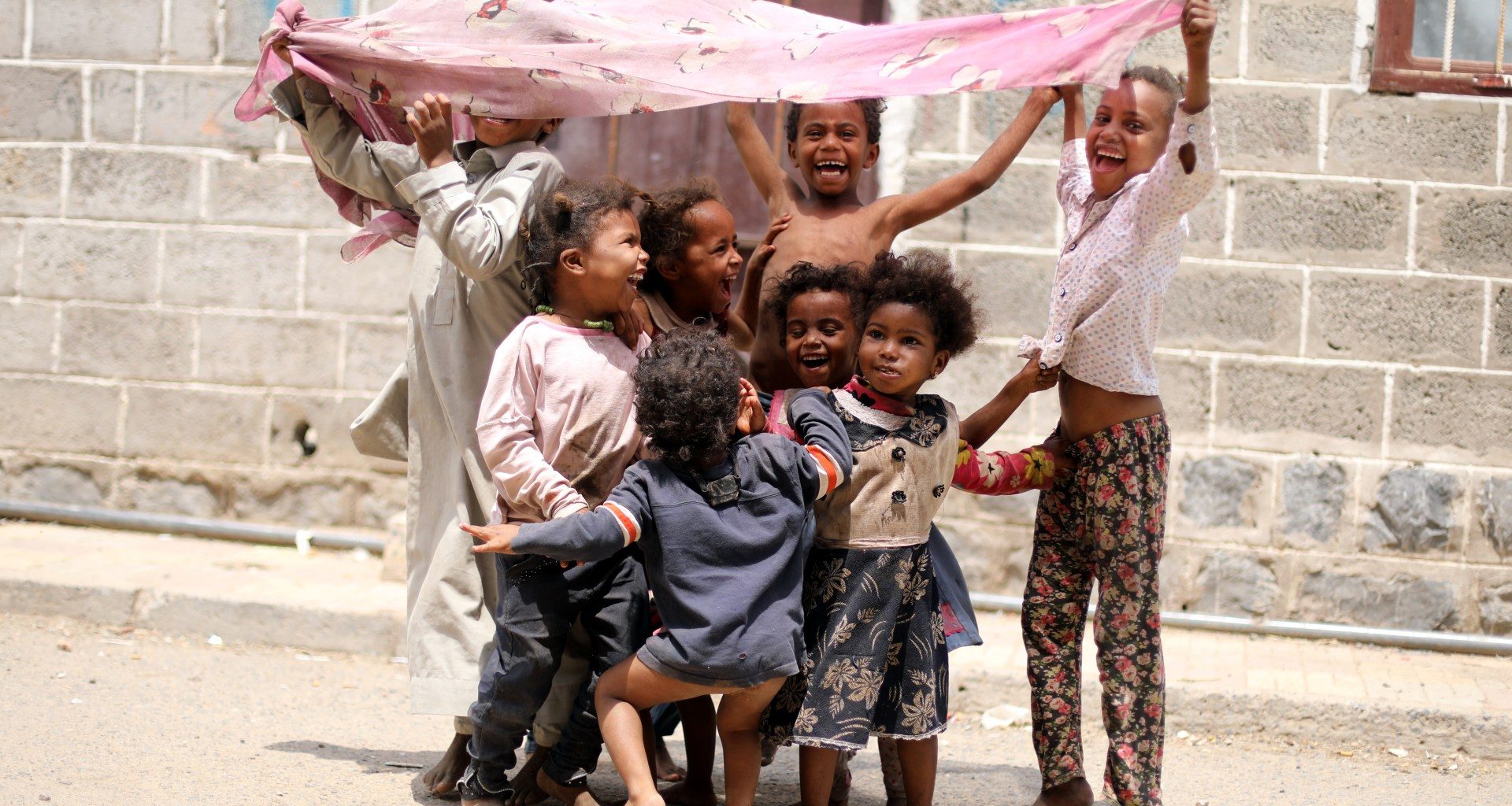
About four and a half million children are not in education in Yemen, while half of the country is in desperate need of medical aid, NGOs have warned.
Reports released on Monday said two in five Yemeni children are not attending school while more than 17 million people – half of them children – require health assistance.
The statistics underline the uncertainty of daily life following a decade of brutal war, the NGOs noted, pointing to mounting difficulties in funding and supplies as the number of emergency situations spread across the Middle East and other global locations.
A Save the Children publication [PDF], Hanging in the Balance: Yemeni Children’s Struggle for Education, details the continuing issues in the country, where a United Nations-negotiated ceasefire has restored relative calm, but humanitarian needs still remain dire amid low-intensity violence.
The Saudi-backed Yemeni government and Iran-aligned Houthis have been fighting since 2014. A UN-brokered truce that took effect in April 2022 brought a sharp reduction in hostilities.
The truce expired in October last year, and fighting largely remains on hold following a renewed peace process reached in December.
PRESS RELEASE: After 9 years of conflict in #Yemen:
▪️ 4.5 million children are out of school
▪️ Displaced children are twice as likely to drop out
▪️ 76% of students reported that their sense of safety has not increased.
New report and press release 👇https://t.co/pAfi85JTmz— Save the Children MENA & Eastern Europe (MENAEE) (@scmenaee) March 25, 2024
“Nine years into this forgotten conflict, we are confronting an education emergency like never before,” Save the Children’s Mohamed Mannaa said in a statement.
“While the truce reduced some violence, it hasn’t ever brought the stability families desperately need to rebuild their lives. Above everything else, families in Yemen need an official ceasefire; without one, families are left in limbo.”
‘Normalized’
The World Health Organization (WHO) said on Monday that as the conflict in Yemen enters its 10th year, over half of the country’s population is in desperate need of aid.
An estimated 17.8 million people require health assistance, 50 percent of them children, the NGO said in a statement.
“It’s almost as if ongoing conflicts have become an accepted part of the everyday realities of life in the region. It’s important to step back and remember that hungry children, disease outbreaks, hospitals shutting down … these are not to be normalized,” said Hanan Balkhy, WHO regional director for the Eastern Mediterranean.
Amid the escalating emergencies in the Middle East and elsewhere, WHO is finding it harder to secure the necessary emergency funding for war-torn spots like Yemen.
In the last five years, it warned, WHO funding for the country has declined by 45 percent. In 2024, WHO needs $77m to provide essential health assistance, it insisted.
Other aid agencies are also experiencing increasing difficulties in providing urgently needed help to Yemen.
In December, the World Food Programme suspended food aid to northern parts of the country citing limited funding and a disagreement with the authorities over how to distribute supplies
Survival trumps education
At least one child has dropped out of school in the past two years in one-third of the families surveyed for the Save the Children report. Displaced children are twice as likely to drop out than their peers, the researchers found.
Economic hardships and insecurity were the main drivers of absenteeism. More than 44 percent of guardians and children surveyed said they were more interested in supporting their family’s income.
Children as young as 12 told the researchers they have had to leave education in order to work.
About a quarter of the families said they could not afford monthly fees and school books.
The UN High Commissioner for Refugees has labelled the conflict in Yemen as the world’s worst humanitarian crisis. Thousands have died and millions have been displaced.
Two-thirds of Yemen’s 33 million inhabitants have fallen below the poverty line, Save the Children said, with about 4.5 million people displaced. Over 3,700 schools have been damaged or repurposed.
Persisting violence
Fourteen percent of families interviewed pointed to insecurity as the reason for children dropping out, with three-quarters of students – 76 percent – reporting that they feel no safer since the truce.
The ripple effects of Israel’s war on Gaza have dragged the country into further warfare, and threaten further destabilisation.
The Houthis, who control much of the country, have attacked ships in the Red Sea in support of Palestinians. In turn, the United States and other military forces, have fired at Houthi targets in Yemen.
Meanwhile, on Sunday, al-Qaeda launched an attack against troops from the secessionist Southern Transitional Council.
Although at odds with the internationally-recognised government, the council – backed by the United Arab Emirates and controlling much of Yemen’s south – is its ally in the war against the Iranian-backed Houthi.
Read More: World News | Entertainment News | Celeb News
Aljazera









